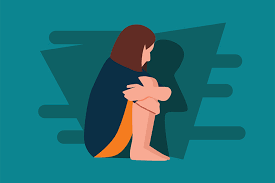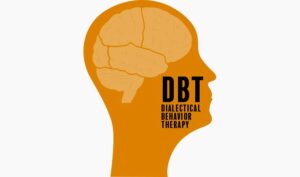Stress is a natural part of life and something that we all experience. From day-to-day hassles to more serious worries and concerns, stress can take its toll on us physically, emotionally, and mentally. For some individuals, the effects of stress can become so severe that they are unable to cope and need professional help. This is when traumatic stress therapy can be beneficial. In this blog post, we will explore the different types of treatment options available for traumatic stress disorders, as well as what you can do to reduce your levels of stress.
Contents
What does “Traumatic Stress” Mean?

Traumatic stress is a normal reaction to an abnormal event. It occurs after experiencing or witnessing an event that involves actual or threatened death, serious injury, or threats to physical integrity and can cause intense fear, helplessness, horror, or horror-related symptoms. Traumatic stress reactions can also arise in response to natural disasters such as floods, earthquakes, tornadoes, or other natural disasters.
Traumatic stress reactions can range from mild to severe and may include numbing, avoidance of reminders, depression, anxiety, guilt, irritability, sleep disturbances, and difficulty concentrating. People experiencing traumatic stress may also experience physical symptoms such as headaches, stomach aches, or chest pain. Traumatic stress can lead to the development of posttraumatic stress disorder (PTSD) if untreated.
It is important to seek help from a mental health professional or doctor who can provide treatment and support. Treatment may include individual counseling, group therapy, medication, or other approaches. It is important to remember that traumatic stress reactions are normal and not a sign of weakness. Treatment can help individuals to cope with the difficult emotions associated with traumatic stress and regain control of their lives.
Treatment of Traumatic Stress
Treating traumatic stress involves a combination of approaches, such as psychotherapy, medications, and lifestyle changes.
Psychotherapy is the main treatment option for traumatic stress and can be done with an individual or in a group setting.
The Different Types of Traumatic Stress Therapy
Traumatic stress therapy comes in many different forms and no two people will respond to or need the same type of therapy. The most important factor in choosing a type of therapy is finding one that you are comfortable with and that you feel will work for you. Here are some of the different types of therapies available:
Cognitive Behavioral Therapy

CBT is a type of psychotherapy that focuses on changing a person’s thought patterns and behavior to reduce stress. Also, CBT treats PTSD, as it helps people identify and challenge negative thoughts or beliefs that may be impacting their mental health.
CBT works by helping people to identify, understand, and change their thoughts and behaviors. This can help them cope with difficult emotions or situations more effectively.
Exposure Therapy
Exposure therapy is particularly helpful in treating PTSD. It involves gradually exposing a person to traumatic memories or situations that they have been avoiding or have been struggling to process. The goal of this type of therapy is to help people learn to cope better with their triggers and the emotions that come along with them.
The techniques of exposure therapy can vary depending on the patient’s needs. It may involve talking through memories, visualizing scenes from the trauma, or even revisiting the traumatic event in real life.
Eye Movement Desensitization and Reprocessing (EMDR)
This type of therapy involves guided eye movements that help people process their traumatic memories and emotions in a safe space. The goal of EMDR is to help reduce the intensity of the memories and emotions associated with traumatic events.
In EMDR, you will focus on traumatic memories while moving your eyes back and forth in a specific pattern. This helps to break down walls that have been built up around the memory due to avoidance or numbing, allowing you to process it more healthily.
Dialectical Behavior Therapy

Another form of cognitive behavioral therapy is Dialectical Behavior Therapy (DBT). This form of CBT focuses on helping individuals to develop better coping and problem-solving skills. Specifically, it focuses on helping people manage emotions more effectively and learn how to be more mindful in their decision-making.
DBT teaches clients how to identify and change unhealthy thought patterns, manage stress, tolerate difficult emotions, and improve their communication skills. It also helps them to learn how to regulate their emotions through the use of mindfulness techniques, such as deep breathing and relaxation activities. Additionally, it provides a structure for helping clients to become more “skillful” in navigating relationships with others.
Trauma-Focused Cognitive Behavioral Therapy
An additional type of psychotherapy that can treat PTSD is Trauma-Focused Cognitive Behavioral Therapy (TF-CBT). This form of therapy focuses on helping individuals process their trauma and learn healthy coping skills to manage intrusive symptoms and emotions. During TF-CB, the therapist helps the individual identify and challenge unhelpful thoughts related to the traumatic event, as well as work through their feelings of guilt and shame.
In addition, the therapist may help the individual learn relaxation techniques such as meditation and deep breathing to reduce physical symptoms of distress. Finally, TF-CBT can include elements of exposure therapy which involves revisiting aspects of the trauma to gain further control over it.
Which Type of Traumatic Stress Therapy Is The Best?

There are many different types of traumatic stress therapies available, and it can be difficult to determine which one is the best for you. The most important thing is to find a therapist who you feel comfortable with and who has experience treating trauma.
The factors that can influence which type of trauma therapy is best for you include:
Type and Severity of Stress
One factor that can help determine the best type of therapy is the type and severity of stress you have experienced. If your traumatic event was particularly severe or involved multiple traumas, then a more intensive form of therapy may be necessary to process the experience.
Some types of therapy that may be beneficial for more severe traumas include trauma-focused cognitive behavioral therapy (TF-CBT), eye movement desensitization and reprocessing (EMDR), and prolonged exposure.
Goals and Expectations
It is important to have realistic goals and expectations when considering a type of traumatic stress therapy. If you are hoping for a “quick fix”, then this might not be the best approach. Traumatic stress therapy can take time to work and process, so it is important to understand that it may take several months or even years before you start feeling better.
It is also important to discuss your goals with your therapist before starting therapy. This will help ensure that the therapy is tailored to your individual needs and goals and that you are getting the most out of it.
Therapist’s Experience
It is important to consider the experience and expertise of the therapist you choose to work with. It is generally recommended to find a therapist who has specific training in trauma therapy and experience working with clients who have experienced trauma. A good therapist should be able to provide a safe, non-judgmental environment for you to explore your experiences and feelings to work through them.
Cost
An additional factor to consider when choosing a type of traumatic stress therapy is cost. Some forms of therapy may be covered by insurance, so it is important to understand your coverage and the costs associated with different types of therapy. If you are unable to access certain therapies due to cost, then there may be other options available, such as group or online therapy.
Conclusion
Traumatic stress therapy is an effective way to help individuals manage their stress and cope with difficult emotions. There are many different types of treatment options available, which can be tailored to meet the individual’s needs. By addressing the root causes of traumatic events and developing healthy coping strategies, these therapies can lead to improved mental health and well-being. Do not hesitate to seek professional help if you feel overwhelmed by your current situation – there are many resources out there that can provide support for those struggling with trauma or other life challenges.
For more information, please contact MantraCare. Stress can have both physical and mental effects on the body, leading to negative consequences such as anxiety, depression, and even physical illnesses. If you have any queries regarding Online Stress Counseling experienced therapists at MantraCare can help: Book a trial Stress therapy session


